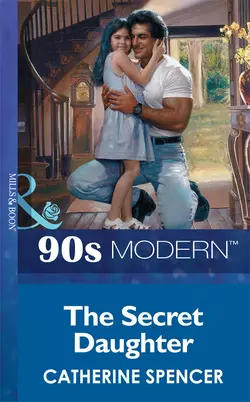The Secret Daughter

Catherine Spencer
Тип: электронная книга
Жанр: Современные любовные романы
Язык: на английском языке
Стоимость: 150.68 ₽
Статус: В продаже
Издательство: HarperCollins
Дата публикации: 16.04.2024
Отзывы: Пока нет Добавить отзыв
О книге: The baby deception Soon after rebel Joe Donnelly′s sizzling night with debutante Imogen Palmer, she had fled. But ten years later, she was back – just as exquisite as ever. And Joe wanted answers. For he had stumbled upon the secret behind her hasty departure – she′d been pregnant with his child… .In search for the truth, Joe was about to uncover an astonishing story that would culminate in a heart-rending reunion with the daughter he never knew he had, and her beautiful mother, Imogen – a woman he should never have allowed to get away… .